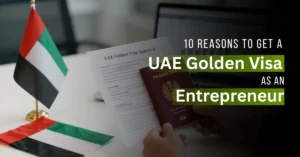Introduction
Dubai stands as a leading global trade hub, thanks to its prime location, advanced infrastructure, and business-friendly regulations that attract global investors. The import export business plays a key role in shaping Dubai’s economy and attracting entrepreneurs from every corner of the globe.
Whether you are an entrepreneur, a small business owner, or an international investor, setting up an import export company in Dubai can open doors to endless opportunities. This guide will walk you through everything you need to know, from setup requirements to costs, benefits, and growth tips.
Why Start an Import Export Business in Dubai?
Dubai has built its reputation as a bridge between East and West. Here are some reasons why investors prefer to establish their import export business in the city:
- Strategic location: Dubai connects Asia, Africa, and Europe, making it an ideal logistics hub.
- Modern ports and airports: Jebel Ali Port and Dubai International Airport support massive trade volumes.
- Business-friendly policies: The government encourages foreign investment with streamlined procedures.
- Tax advantages: Many free zones offer zero corporate and personal tax, boosting profitability.
Key Requirements for Import Export Business Setup
Before starting, you need to fulfill a few essential requirements:
- Trade license: Every company must obtain a trade license from the Department of Economy and Tourism (DET) or the relevant free zone authority.
- Business location: Decide whether you want to operate in the Mainland or in a Free Zone.
- Customs registration: All importers and exporters must register with Dubai Customs.
- Import/export code: This code is mandatory for all trade activities and is issued after customs registration.
Step-by-Step Process to Start an Import Export Company
1. Step 1: Decide on the Business Structure
The first step is to decide how you want to structure your company. You may set up your business as a sole proprietorship, a partnership, or a limited liability company (LLC). Each option comes with different rules for ownership, liability, and management. For example, an LLC is often preferred because it offers flexibility and limits personal liability, while free zones allow 100% foreign ownership. Choosing the right structure ensures your business aligns with your long-term goals.
Step 2: Choose a Business Activity and Trade License
Next, you must define your business activity. Will you trade in food, textiles, electronics, or general goods? Once you select the activity, you need to apply for the correct trade license. In Dubai, the Department of Economy and Tourism (DET) issues mainland licenses, while each free zone authority issues licenses for businesses under its jurisdiction. Having the right license ensures you can legally carry out import and export activities.
Step 3: Select a Location (Mainland vs Free Zone)
You must also decide whether to operate from the mainland or a free zone. A mainland company gives you the freedom to trade directly within the UAE and with international markets. In contrast, free zones provide full foreign ownership, streamlined setup processes, and attractive tax advantages. The choice depends on your target market and the type of products you plan to trade.
Step 4: Register with Dubai Customs
Every import export business must register with Dubai Customs. Registration gives your company the legal right to move goods through the city’s ports and airports. Once registered, you will receive a customs code linked to your trade license. This step is crucial because no shipment can clear customs without proper registration.
Step 5: Apply for an Import/Export Code
After registering with Dubai Customs, you must apply for an import/export code. This unique code allows your company to process shipments and complete customs clearance procedures. Without it, you cannot import or export goods legally. The process is straightforward and usually completed online through Dubai Customs’ portal.
Step 6: Open a Corporate Bank Account
The final step is to open a corporate bank account in the UAE. This account allows you to manage international payments, handle large transactions, and keep your business finances separate from personal funds. Most banks in Dubai require a trade license, customs registration, and shareholder documents before opening the account. A local account also builds credibility with suppliers, customers, and government authorities.
Documents Needed for Import Export Business in Dubai
To establish your company, you must submit a few documents:
- Passport copies of shareholders
- Trade name approval certificate
- Memorandum of Association (MoA)
- Lease agreement for office or warehouse space
- Customs registration documents
Cost of Setting Up an Import Export Business in Dubai
The overall cost depends on your chosen location and business model:
- Licensing costs: Starting from around AED 12,000 in free zones (varies by authority).
- Office or warehouse rent: Prices depend on the area and size of the facility.
- Additional fees: Customs registration, visa applications, and bank setup costs add to the budget.
- Mainland vs Free Zone: Free zones often have lower costs with added tax benefits, while the Mainland offers broader trade flexibility.
Benefits of Import Export Business in Dubai
Starting an import/export company in Dubai comes with several advantages:
- 100% foreign ownership in free zones gives investors full control.
- Access to international markets through world-class logistics facilities.
- Advanced infrastructure ensures fast and efficient supply chain operations.
- Easy profit repatriation lets investors transfer earnings without restrictions.
Best Free Zones for Import Export Companies in Dubai
Dubai offers several specialized free zones that make it easier for entrepreneurs to set up and grow their import export business. Each free zone has its own advantages, facilities, and focus areas. Choosing the right one depends on the type of goods you plan to trade and the markets you want to target.
1. Jebel Ali Free Zone (JAFZA)
JAFZA is one of the largest and most trusted free zones in the Middle East. It is directly connected to Jebel Ali Port, the biggest seaport in the region, which gives businesses a major advantage in global shipping. Companies in JAFZA enjoy access to advanced logistics facilities, warehouses, and storage spaces. If you want to trade in bulk goods, heavy equipment, or international shipments by sea, JAFZA is an excellent choice.
2. Dubai Multi Commodities Centre (DMCC)
DMCC is a popular hub for trading commodities such as gold, diamonds, coffee, tea, and energy products. It has earned a global reputation as one of the best places for commodity traders due to its specialized infrastructure and support services. DMCC also provides a strong business community where investors can network and form new partnerships. If your focus is on trading high-value or niche products, DMCC gives you the right environment.
3. Dubai Airport Free Zone (DAFZA)
DAFZA is strategically located near Dubai International Airport, making it perfect for businesses that rely on air freight and fast delivery. Companies that trade electronics, perishables, pharmaceuticals, or luxury items often choose DAFZA because of its speed and efficiency in handling time-sensitive shipments. It also offers modern office spaces, warehouses, and direct access to customs, which reduces delays in international trade.
4. Dubai South Free Zone
Dubai South is built around Al Maktoum International Airport, one of the world’s largest aviation projects. It is designed as an integrated logistics hub that connects air, sea, and land transport. Businesses in Dubai South enjoy modern warehouses, cargo facilities, and quick access to shipping routes. This free zone is ideal for companies that want to scale their import/export operations with a focus on global connectivity.
Tips for Growing a Successful Import Export Business
Sustainability and growth require careful planning. Here are some tips:
- Build strong supplier and distributor networks to ensure smooth operations.
- Stay updated with customs regulations to avoid fines or delays.
- Leverage technology for inventory tracking and logistics management.
- Conduct thorough market research before choosing products to trade.
Conclusion
Dubai offers unmatched advantages for anyone looking to start an import export business. From tax-friendly policies and free zones to global connectivity and modern infrastructure, the city provides everything you need for success.
If you are ready to explore this opportunity, now is the perfect time to set up your company. With the right planning, network, and strategy, your import export business in Dubai can thrive in one of the world’s fastest-growing trade markets.






